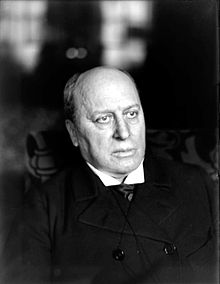 It had occurred to her early that in her position–that of a young person spending, in framed and wired confinement, the life of a guinea-pig or a magpie–she should know a great many persons without their recognising the acquaintance. That made it an emotion the more lively–though singularly rare and always, even then, with opportunity still very much smothered–to see any one come in whom she knew outside, as she called it, any one who could add anything to the meanness of her function. Her function was to sit there with two young men–the other telegraphist and the counter-clerk; to mind the “sounder,” which was always going, to dole out stamps and postal-orders, weigh letters, answer stupid questions, give difficult change and, more than anything else, count words as numberless as the sands of the sea, the words of the telegrams thrust, from morning to night, through the gap left in the high lattice, across the encumbered shelf that her forearm ached with rubbing. This transparent screen fenced out or fenced in, according to the side of the narrow counter on which the human lot was cast, the duskiest corner of a shop pervaded not a little, in winter, by the poison of perpetual gas, and at all times by the presence of hams, cheese, dried fish, soap, varnish, paraffin and other solids and fluids that she came to know perfectly by their smells without consenting to know them by their names.
It had occurred to her early that in her position–that of a young person spending, in framed and wired confinement, the life of a guinea-pig or a magpie–she should know a great many persons without their recognising the acquaintance. That made it an emotion the more lively–though singularly rare and always, even then, with opportunity still very much smothered–to see any one come in whom she knew outside, as she called it, any one who could add anything to the meanness of her function. Her function was to sit there with two young men–the other telegraphist and the counter-clerk; to mind the “sounder,” which was always going, to dole out stamps and postal-orders, weigh letters, answer stupid questions, give difficult change and, more than anything else, count words as numberless as the sands of the sea, the words of the telegrams thrust, from morning to night, through the gap left in the high lattice, across the encumbered shelf that her forearm ached with rubbing. This transparent screen fenced out or fenced in, according to the side of the narrow counter on which the human lot was cast, the duskiest corner of a shop pervaded not a little, in winter, by the poison of perpetual gas, and at all times by the presence of hams, cheese, dried fish, soap, varnish, paraffin and other solids and fluids that she came to know perfectly by their smells without consenting to know them by their names.
In the Cage, Henry James